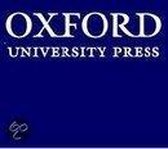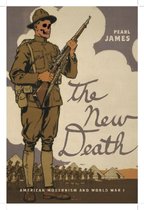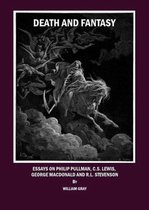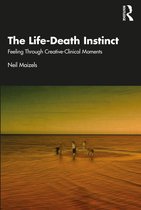Issues of Death Mortality and Identity in English Renaissance Tragedy
Afbeeldingen
Sla de afbeeldingen overArtikel vergelijken
Uitgever: Oxford University Press
Auteur:
Michael Neill
- Engels
- Paperback
- 9780198184935
- 07 januari 1999
- 424 pagina's
Samenvatting
Examines "death" as a product of the human imagination - all animals die, but only humans suffer death. The book explores tragic literature as an instrument through which the culture of early modern England imagined the encounter with mortality, looking at the theatrical reinvention of death.
Death, like most experiences that we think of as natural, is a product of the human imagination: all animals die, but only human beings suffer Death; and what they suffer is shaped by their own time and culture. Tragedy was one of the principal instruments through which the culture of early modern England imagined the encounter with mortality. The essays in this book approach the theatrical reinvention of Death from three perspectives. Those in Part I explore Death as a trope of apocalypse -- a moment of un-veiling or dis-covery that is figured both in the fearful nakedness of the Danse Macabre and in the shameful openings enacted in the new theatres of anatomy. Separate chapters explore the apocalyptic design of two of the periods most powerful tragedies -- Shakespeare's Othello, and Middleton and Rowley's The Changeling. In Part 2, Neill explores the psychological and affective consequences of tragedy's fiercely end-driven narrative in a number of plays where a longing for narrative closure is pitched against a particularly intense dread of ending. The imposition of an end is often figured as an act of writerly violence, committed by the author or his dramatic surrogate. Extensive attention is paid to Hamlet as an extreme example of the structural consequences of such anxiety. The function of revenge tragedy as a response to the radical displacement of the dead by the Protestant abolition of purgatory -- one of the most painful aspects of the early modern re-imagining of death -- is also illustrated with particular clarity. Finally, Part 3 focuses on the way tragedy articulates its challenge to the undifferentiating power of death through conventions and motifs borrowed from the funereal arts. It offers detailed analyses of three plays -- Shakespeare's Antony and Cleopatra, Webster's The Duchess of Malfi, and Ford's The Broken Heart. Here, funeral is rewritten as triumph, and death becomes the chosen instrument of an heroic self-fashioning designed to dress the arbitrary abruption of mortal ending in a powerful aesthetic of closure.
Death, like most experiences that we think of as natural, is a product of the human imagination: all animals die, but only human beings suffer Death; and what they suffer is shaped by their own time and culture. Tragedy was one of the principal instruments through which the culture of early modern England imagined the encounter with mortality. The essays in this book approach the theatrical reinvention of Death from three perspectives. Those in Part I explore Death as a trope of apocalypse -- a moment of un-veiling or dis-covery that is figured both in the fearful nakedness of the Danse Macabre and in the shameful openings enacted in the new theatres of anatomy. Separate chapters explore the apocalyptic design of two of the periods most powerful tragedies -- Shakespeare's Othello, and Middleton and Rowley's The Changeling. In Part 2, Neill explores the psychological and affective consequences of tragedy's fiercely end-driven narrative in a number of plays where a longing for narrative closure is pitched against a particularly intense dread of ending. The imposition of an end is often figured as an act of writerly violence, committed by the author or his dramatic surrogate. Extensive attention is paid to Hamlet as an extreme example of the structural consequences of such anxiety. The function of revenge tragedy as a response to the radical displacement of the dead by the Protestant abolition of purgatory -- one of the most painful aspects of the early modern re-imagining of death -- is also illustrated with particular clarity. Finally, Part 3 focuses on the way tragedy articulates its challenge to the undifferentiating power of death through conventions and motifs borrowed from the funereal arts. It offers detailed analyses of three plays -- Shakespeare's Antony and Cleopatra, Webster's The Duchess of Malfi, and Ford's The Broken Heart. Here, funeral is rewritten as triumph, and death becomes the chosen instrument of an heroic self-fashioning designed to dress the arbitrary abruption of mortal ending in a powerful aesthetic of closure.
Productspecificaties
Wij vonden geen specificaties voor jouw zoekopdracht '{SEARCH}'.
Inhoud
- Taal
- en
- Bindwijze
- Paperback
- Oorspronkelijke releasedatum
- 07 januari 1999
- Aantal pagina's
- 424
- Illustraties
- Nee
Betrokkenen
- Hoofdauteur
- Michael Neill
- Hoofduitgeverij
- Oxford University Press
Overige kenmerken
- Editie
- New edition
- Extra groot lettertype
- Nee
- Product breedte
- 138 mm
- Product hoogte
- 23 mm
- Product lengte
- 217 mm
- Studieboek
- Ja
- Verpakking breedte
- 146 mm
- Verpakking hoogte
- 25 mm
- Verpakking lengte
- 222 mm
- Verpakkingsgewicht
- 590 g
EAN
- EAN
- 9780198184935
Je vindt dit artikel in
- Categorieën
- Taal
- Engels
- Boek, ebook of luisterboek?
- Boek
- Land
- Engeland
- Studieboek of algemeen
- Algemene boeken
Kies gewenste uitvoering
Bindwijze
: Paperback
Prijsinformatie en bestellen
De prijs van dit product is 66 euro en 66 cent. Dit is een tweedehands product.Alleen tweedehands
Als nieuw
Uiterlijk 13 juni in huis
Verkoop door
Bogamo 13 - Boeken outlet
- Bestellen en betalen via bol
- Prijs inclusief verzendkosten, verstuurd door Bogamo 13 - Boeken outlet
- 30 dagen bedenktijd en gratis retourneren
Shop dit artikel
Rapporteer dit artikel
Je wilt melding doen van illegale inhoud over dit artikel:
- Ik wil melding doen als klant
- Ik wil melding doen als autoriteit of trusted flagger
- Ik wil melding doen als partner
- Ik wil melding doen als merkhouder
Geen klant, autoriteit, trusted flagger, merkhouder of partner? Gebruik dan onderstaande link om melding te doen.










